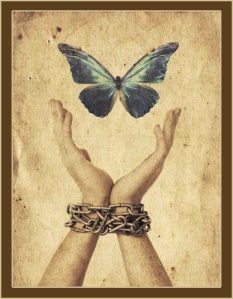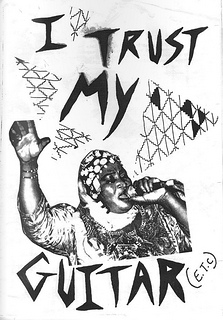From six in the morning, pre-dawn, sounds at once raucous and rhythmic accompany my waking fluster. That holy din heralds a pooja conducted in the hall behind my flat. I am told the ritual will last for three days, culminating in narayanseva or distribution of food and clothing for the needy. The dissonant voices chanting rites for Vishwashanthi Yagna, or ritual for world peace rent the warm morning air, air that will touch forty degrees centigrade or more by midday. A summer of heat and water scarcity ushers in Merlin’s death day, teaming up with social ritual to make it a day to endure in fortitude.
World peace is an utopian concept to a punk like me–societies, identities, people, men, women, too much flux in life to reach a stasis of peace. Sure enough, the morning cacophony turns into a yearning, atonal, chant, reminding me, strangely enough, of the Muslim music I heard in a Kashmiri shop in Goa. Then too, on another morning, the music roused a restless grief in me. Tracing these hyper-connections through the web, I happen on Rabbi Shergill, urban balladeer, whose record ‘Rabbi’ fuses an eclectic mix of religions, music genres and communities, a meta-link for my own quests. I offer my reader Rabbi Shergill singing the poetry of Bulleh Shah, Sufi mystic (circa 1680-1757)–
Not a believer inside the mosque, am I/
Nor a pagan disciple of false rites/
Not the pure amongst the impure/
Neither Moses, nor the Pharoh/
Bulleya! to me, I am not known/
In happiness nor in sorrow, am I/
Neither clean, nor a filthy mire/
Not from water, nor from earth/
Neither fire, nor from air, is my birth/
Bulleya! to me, I am not known/
Not an Arab, nor Lahori/
Neither Hindi, nor Nagauri/
Hindu, Turk, nor Peshawari/
Nor do I live in Nadaun/
Bulleya! to me, I am not known/
Secrets of religion, I have not known/
From Adam and Eve, I am not born/
I am not the name I assume/
Not in stillness, nor on the move/
Bulleya! to me, I am not known/
I am the first, I am the last
None other, have I ever known
I am the wisest of them all
Bulleh! do I stand alone?/
Bulleya! to me, I am not known/
Born in then Punjab, amidst the communal rioting between Muslims and Sikhs, caught up in savage race riots, Bulleh Shah turned mystic seer. His birthplace now lies in Pakistan, over the border from India, the two countries unfriendly neighbors. Amassing a cult following in Asia, Bulleh Shah’s poem, a mix of urdu and punjabi, is sung by a Sikh who appropriates the Jewish title of Rabbi, Rabbi Shergill. Shergill’s contemporary fusion joins east-west beats, but Qawwali yearning [http://en.wikipedia.org/wiki/Qawwali] resounds through it all.
Seduced as I am by the music and words, something in me also resists. Is such a-social longing always male? Hard to find songs by women that trace such anti-social, alienated, longing through time. Merlin/ Swami was also biologically male, but I could not gender his androgynous being. Even to use the male pronoun to describe him feels sacrilegious, reducing (in)human pixie to human species.  But, he lived, he died, caught in time–of the human species he must be! I remember now, about a decade ago, sitting in the lines for darshan, women on one side of the hall, men on the other.
But, he lived, he died, caught in time–of the human species he must be! I remember now, about a decade ago, sitting in the lines for darshan, women on one side of the hall, men on the other.
Merlin makes his way down through the hall, he goes past us women first. Behind me, a voice whimpers, “Babaaaa, baba, baba…” Baba means father, and often used for all saints, men, elders [http://en.wikipedia.org/wiki/Baba_%28honorific%29]. Swami, (this word also generic title for saint!) pauses, half turns his head with its halo of black hair, an Afro,
“Ba Baa black sheep, have you any wool? Yes sir, yes sir, three bags full.”
The reply haunts me still, mocking the human urge to make god over in our own image, our society, familiar family. Or is it sarcastic pun on his own mop of woolly black hair, “black sheep?” Or does it echo the master/slave dialectic between god and devotee, human and animal? Is it a subtle poke at the colonialisms of our britishized upbringing, learning racist rhymes? This was/ is the dance with Merlin/ Swami, whirling me through hoops of my own mind.
Making these wry rejoinders within earshot, his eyes would catch mine, gleaming with laughter. “I know, I know. What do you know?” he acerbically asked me in another encounter, forcing me to see my own intellectual arrogance, a legacy of my doctorate from the States. Angry women, tired of being on the sidelines, turn spiritual, empowered by rage, yearning for spaces less constricted. My own rage at the world was fueled curiously enough by such encounters with Swami–he needled me out of cozy identities, social or sexual or class. He even sent me to the States, “She has to go, she can’t be without going.” And, after a decade, he exasperated me into returning, with messages through my Mum, with piquing dreams, with frustrations at academic status quo. So, my punk allegiance, ironically, lies in my dance with Merlin.

Artist: Saadaspeak كلام سَعْدَى
Osa Atoe, Nigerian Amerian, queer, punk rocker, founder of Shotgun Seamstress zine muses,
…no one gets to say what punk is. No one owns it. And in reality, punk rock ranges from Christian punk to radical queer punk: from drunk white boys annihilating each other in a mosh pit to anarcho-feminist reading groups. These characteristics can be found outside of punk rock too, in the lives of activists, artists, hippies and other wingnuts who are not necessarily affiliated with any ‘‘scene’’ per se. Things like communal living; anti-consumerism; DIY music and art making; feminist, anti-capitalist (including but not limited to socialist & Marxist), anarchist, anti-war, and environmentalist beliefs. [Osa Atoe in an interview with Elizabeth Stinson [https://files.nyu.edu/es544/public/WP-PA22.2-3.pdf]
For my Merlin/ Swami’s death day, I celebrate process, breath that flows through all species, that rouses the inanimate into resistance against the living, action and reaction. [about reaction from the inanimate world see https://quiescentbeing.wordpress.com/2013/03/29/watering-the-garden/ ] “Jagath Mithya” Swami insists. In a world combining truth and falsehood, why search for absolutes? “Love is a bridge over the sea of change. Do not build a house on it.” Merlin’s paradox. We search through different truths in quest of one, but that universal transcendent One rests on difference. That’s the ironic beauty of living and loving–nothing lasts.
On the Al-Jazeera You tube channel, in the panel discussion “Who Speaks for Muslim Women,” Hind Makki reflects on Femen‘s topless revolt [for the revolt see http://www.guardian.co.uk/world/2013/apr/12/femen-activist-protest-putin-merkel]. She points out, “Femen is asking us to choose between feminism and our faith…between our gender identity and our faith identity….the prophets were radicals, but they worked within their societies.” [Makki’s blog, http://www.patheos.com/blogs/hindtrospectives/] Questioning the relationships between their faith, Islam, their gender, their race, their nationalities, the women on Al Jazeera’s panel come to no one consensus. Watching them, I confront the mystery of faith. These women acknowledge that Islam is not one singular religion, nor is feminism a singular ideology. Beliefs conflict even as we join together as women, or as Muslims, or Hindus, or devotees, or Indians, or Iranians, a consensus of absolute oneness is out of reach, either for Femen or for the diverse other Muslim women.
Take for example, Taquacore muslim punk, a movement that began in fiction but moved to real life. For Malik from The Kominas his music calls forth,
the idea of a complicated Islam. It’s western Islam’s first real voice of dissent. Because we are complicated. I don’t even feel Muslim most days. I know the culture, but I’m also American so I’m informed by rock’n’roll, hip-hop and everything else. I call myself a non-denominational atheist Muslim, but what does that even mean? [http://www.guardian.co.uk/music/2011/aug/04/islamic-punk-muslim-taqwacores%5D
Malik is a guy, and a Muslim, his struggle is between his music identity and his faith. But that discomfort with where you are, that questioning, that frustration, is quintessential punk. As always, that discomfort casts me back to an interconnected sentience, an it-ness, breath of breath, that we humans may never put into words. Of course, we can try. Struggling for words, I call upon punk anger, rejecting social givens. Security, identity, family–nothing is safe, all beings, all concepts, all identities move in flux. If the earth blows up, other stars may nurture other life. No absolutes around me in life, jagath mithya, yet G-O-D moves through all.
[http://issuu.com/raggs/docs/itmg1/1]
Related articles
- Ikhwan Allani to feature at Sufi Poets Series celebrating Bulleh Shah (ismailimail.wordpress.com)
- A Tribute to Baba Bulleh Shah-Exploring Sufism! (rohankalia.wordpress.com)
- Muslim women against ‘topless jihad’ (huffingtonpost.co.uk)
- Muslim Women Against Femen: Facebook Group Takes On Group In Wake Of Topless Jihad (theuglytruth.wordpress.com)
- Muslim Women Shockingly Not Grateful for Topless European Ladies Trying To ‘Save’ Them (jezebel.com)
- Femen Are Brave Women – But Their Anti-Muslim Rhetoric Is Dangerous (koolnews.wordpress.com)
- Wake up bell (quiescentbeing.wordpress.com)
- Spiritual Punk 2 (quiescentbeing.wordpress.com)
- Spiritual punk (Part 1) (quiescentbeing.wordpress.com)
- What Does Punk Rock Have To Do With William Shakespeare? (resurrectionwaltz2013.wordpress.com)
